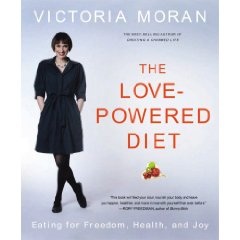The Kirstie Ally interview on Oprah a couple of weeks ago nearly broke my heart. I identified — and not just because Kirstie and I are about the same age and we’re both Midwestern gals with a lot of spunk. Here’s what we really have in common: food — too much of it, eaten for the wrong reasons — has made both of us feel sad, ashamed, and less magnificent than we are. For me, it hasn’t been like that for a really long time — twenty-five years. Kirstie, and millions of other Americans, are still in the thick of it. It’s not their fault. It’s an addiction. And there is a way out that starts on the inside.

Patterns
You may eat for a fix in many of the ways that I did.
The pattern may have started early in life or when you got married or after you
were divorced. You may trace it to a pregnancy or the loss of someone you
loved, or it may have come upon you subtly and gradually. You may eat enormous
meals or snack all day and not even remember when you had your last real
breakfast, lunch, or dinner. You may only eat unreasonably when it comes to
chocolate or other sweets, or salty, crunchy snacks. Perhaps you eat sparingly
around other people and binge on the sly so no one can understand why you can’t
lose weight. (“She eats like a bird,” you’ve heard them say, “but she’s as big
as a house.”)
On the other hand, you may be enviably slim and only
you know that you stay that way by throwing up every day or that your
preoccupation with fitness long ago shifted from a healthy habit to a
tyrannical compulsion. You could be eating quite reasonably and looking fine
but you feel fat, berate yourself, and believe that if only you had a perfect
body, you could live a perfect life. Maybe you’re so devastated by the
addiction that you avoid people as much as you can and hardly bother to wash
the one outfit that you can still wear. More likely, though, you seem to
function flawlessly and keep on top of everything except for a “little problem
with eating.” It’s also possible that you don’t have a serious problem with
overeating or body image, but it’s been six months since your doctor told you
to make some changes in your food choices and you haven’t been able to do it to
save your life.
Whatever category you belong in, you’ve probably said,
“I guess I just like food too much.” Of course you like food. Everybody does.
We’re supposed to like it so much that we eat it as long as we live and live as
long as we can. That’s nature’s way. It’s only when food seems to choose us
instead of our choosing it that something is wrong. Any time we stuff
ourselves, starve ourselves, or eat something we know to be harmful, we’re
mistreating ourselves in ways that we don’t deserve. When we do any of these
things repeatedly, we establish a self-destructive and self-defeating pattern.
When we want to stop but can’t , we’re addicted.
Some would argue with that terminology. That would say
that food is not universally addictive like heroin or even selectively
addictive like alcohol. They might argue that food can cause, at worst, a
behavioral dependence. The phenomenon of craving, however, exists in food
addiction as in any other kind. It was powerful enough to send me out on foot
at midnight in search of caramels. I once had cravings so strong I took
leftover cake from an office wastebasket, brushed off the debris, and ate all
but the cardboard plate.
I also know that food can be the object of addiction
because I see others and myself
recovering by using the same principles of transformation that work for
other addictions. The only real difference in getting over a food addiction as
opposed to an addiction to alcohol or cocaine is one of abstemiousness versus
abstinence. Alcoholics stop drinking alcohol. Drug addicts stop using
mood-altering drugs. Food addicts can’t give up eating, but we can stop eating
for a fix. Recovery is a delicate balance somewhere between the binge and the
diet. That’s where we abandon the struggle and find sanity and peace of mind.
The dictionary defines recovery as “to get back.” For
me it has meant getting back some surprising things–the years I lost to
binge-eating, for instance. I spent so much of my earlier life in the disease
that even though I’m well over fifty, I delight in looking and feeling younger
than I am. I’m able to use the nutritional knowledge that I had in abundance
(food addicts love learning about food) but could never apply. I’ve even gotten
back the joy of eating. What I did before was drugging, and it was seldom
pleasant to my stomach or my conscience. Eating is a pleasure today–that’s how
it should be. But it’s a peripheral pleasure, not the center of my world. And this
is not some new, post-diet euphoria: it’s been like this for me, one day
following another, for nearly twenty-five years.
I once hated the way that I ate but couldn’t change
it. The difference started when I gave up willpower for the power of love–love
for myself and from myself, for others and from them, and grounded in the love
that is also power. I’m comfortable calling that God. You can call it whatever
you like. It has, by any name, provided an answer where there seemed to be
none, and a life beyond the fix that’s filled with hope and humor and
expectation. Tapping into this power is essential for addicts to live again,
and my hunch is that some of that same power is needed for almost anyone to
make major lifestyle changes that last. If you do not believe in miracles, or
if you think that they don’t happen anymore, just come to my house for dinner.
Radio interview on The Love-Powered Diet: yours truly with fab host of the “Myth & Logic” show, Steve Murasso: http://www.talkshoe.com/tc/59174

